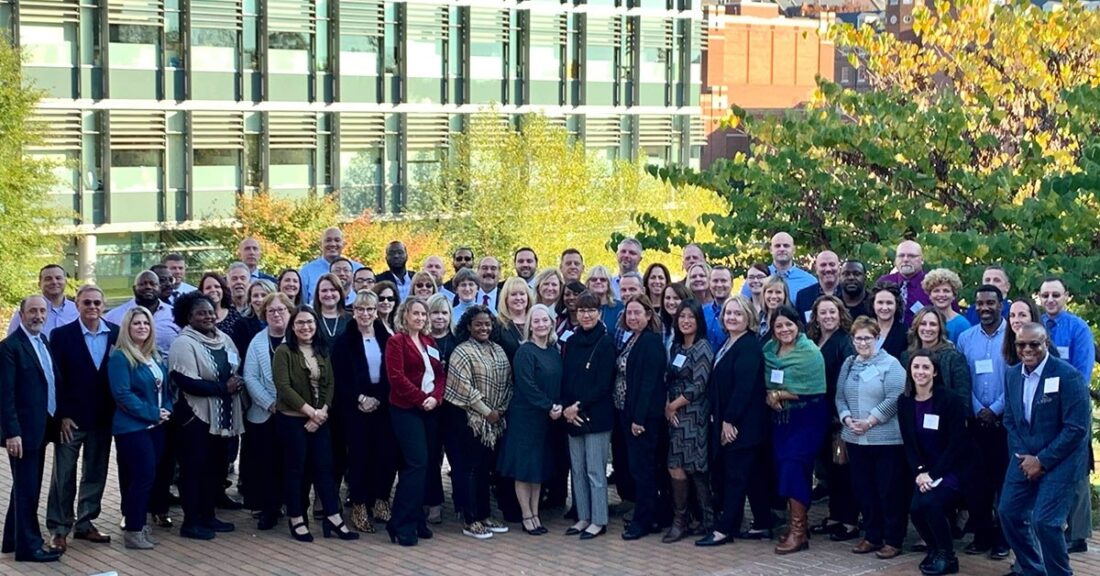Apply Now: Transforming Juvenile Probation Certificate Program

Georgetown University’s Center for Juvenile Justice Reform (CJJR) is now accepting applications for a week-long certificate program that aids state and local jurisdictions in adopting a safer, youth-centered approach to juvenile probation.
About the Certificate Program
The Transforming Juvenile Probation Certificate Program, offered with support from the Annie E. Casey Foundation, will run from May 16–20, 2022, in Washington, D.C. The final day for teams to apply is Feb. 25, 2022.
The program, launched in 2019, offers a curriculum rooted in Casey’s Transforming Juvenile Probation report and the CJJR and Council of State Governments Justice Center publication, Transforming Juvenile Justice Systems to Improve Public Safety and Youth Outcomes.
“This is an opportunity for jurisdictions to fully shift the role of probation away from surveillance and compliance and toward promoting personal growth, positive behavior change and long-term success for youth,” says Steve Bishop, associate director of probation and system transformation in the Foundation’s Juvenile Justice Strategy Group.
This year’s program can accommodate up to five teams.
What to Expect
In May 2022, participants will hear practitioners, researchers and policymakers present on an array of topics, such as:
- incorporating practices for fairness and equity;
- youth, family and community partnership and empowerment;
- diversion as an off-ramp from the formal justice system;
- decision making about the length and intensity of probation terms;
- roles of probation officers; and
- leading transformational change.
As part of the program, teams will develop and implement a capstone project to transform their jurisdiction’s work. During this time, they will receive technical assistance on a variety of fronts, including when:
- developing and implementing new policies and practices;
- training staff and stakeholders to promote buy-in and collaboration; and
- assessing, evaluating and sustaining progress.
Once a team’s capstone project is approved, its members will earn an executive certificate from Georgetown University and join CJJR’s network of over 1,500 fellows.
Who Should Apply
Each team may have up to 10 members and must include the following:
- chief probation officer;
- field supervisor or deputy;
- frontline staff member;
- youth — or family member of a youth — with experience navigating the juvenile justice system;
- leader from a community-based organization;
- judge;
- prosecutor; and
- defense attorney.
The application also recommends other team members, including the law enforcement official who leads the juvenile division.
The ideal team also demonstrates most or all of the following characteristics:
- a commitment to comprehensive probation transformation;
- a history of effective implementation of juvenile justice reforms;
- a desire to implement innovative practices and be a national leader in transforming youth justice;
- a history of successful collaboration among agencies, public systems and community stakeholders; and
- the organizational and data capacity to support probation transformation.
Real-world Results
One participant, Moira O’Neil with the Office of the Child Advocate in New Hampshire, noted her team’s capstone project cut their jurisdiction’s 20 probation rules down to five while bolstering the use of individualized treatment plans for youth. “As a result of our efforts, New Hampshire is in a better place,” O’Neil said.
Another participant, Timothy Wires, the chief of probation in Stark County, Ohio discussed his growth in recognizing how race and a history of discriminatory policies and practices have played out in the justice system. He credits the program with enhancing his agency’s ability “to dissect, rewrite and implement probation practices through the lens of equity.”
Next Steps
- Download the application packet to learn more about the curriculum, application process, selection criteria and cost of participating.
- Submit your application by Friday, Feb. 25, 2022.
Per current Georgetown University policy, all participants must submit proof of full vaccination for COVID-19. Masks are required on site. Participants will receive updates regarding Georgetown University’s pandemic safety policies.
Related Resources
Read an announcement on the program’s first class of participants
Watch a three-minute video on Casey’s vision for probation transformation






